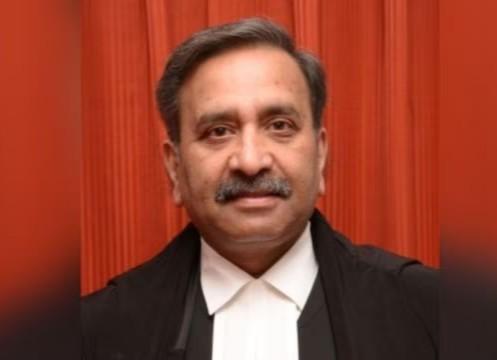
Judge claims ‘higher judiciary’ pressure to favour one party in insolvency case
In a shocking revelation, a judicial member of the Chennai National Company Law Appellate Tribunal (NCLAT) has recused himself from an insolvency case citing pressure from a prominent member of the higher judiciary. The development has raised serious concerns about the independence of the judiciary and the impact it may have on the country’s insolvency resolution process.
According to a report by The Indian Express, Justice Sharad Sharma, a judicial member of NCLAT, recused himself from the case against Hyderabad-based real estate firm KLSR Infratech Ltd., citing pressure from a respected member of the higher judiciary. Justice Sharma claimed that the higher judiciary member approached one of his colleagues at NCLAT and asked him to favour a particular party in the case.
The insolvency case against KLSR Infratech Ltd. is pending before NCLAT, and the company is facing proceedings under the Insolvency and Bankruptcy Code (IBC). The IBC is a critical legislation aimed at resolving insolvency issues quickly and efficiently, ensuring that creditors receive fair treatment and that companies are revived or wound up in a timely manner.
The pressure allegedly exerted by the higher judiciary member is a serious concern, as it undermines the integrity and impartiality of the insolvency process. The IBC is designed to provide a level playing field for all parties involved, and any attempt to influence the outcome of a case can lead to unfairness and injustice.
The development has also raised questions about the role of the higher judiciary in the insolvency process. While the higher judiciary has a crucial role to play in ensuring the integrity of the judicial system, its involvement in individual cases can be counterproductive. In this case, the alleged pressure exerted by the higher judiciary member has undermined the independence of the NCLAT member and raised concerns about the impartiality of the court.
The Indian Express report quotes Justice Sharma as saying, “A respected member of the higher judiciary approached one of my colleagues and asked him to favour a particular party in the case. I was told that this member of the higher judiciary was ‘very powerful’ and that I should cooperate with him. I felt that it was inappropriate for me to continue with the case, given the pressure being exerted on my colleague.”
The incident has sparked a heated debate about the role of the higher judiciary in the insolvency process. Some have argued that the higher judiciary should play a more active role in ensuring the integrity of the system, while others have expressed concerns about the potential for abuse of power.
The development has also raised questions about the accountability of the higher judiciary. While the higher judiciary is accountable to the public, there are concerns that its members may be above the law. The alleged pressure exerted by the higher judiciary member in this case is a stark reminder of the need for greater accountability and transparency in the judicial system.
The incident has also sparked a debate about the need for reforms in the insolvency process. Some have argued that the IBC needs to be strengthened to prevent similar incidents in the future. Others have called for greater transparency and accountability in the judicial system.
In conclusion, the incident highlights the importance of maintaining the independence and impartiality of the judiciary. The alleged pressure exerted by the higher judiciary member has raised concerns about the integrity of the insolvency process and the potential for abuse of power. It is essential that the higher judiciary and the NCLAT take immediate action to address these concerns and ensure that the insolvency process is fair and transparent.
Source:
https://indianexpress.com/article/india/nclat-judge-pressure-judiciary-10212574/lite/






